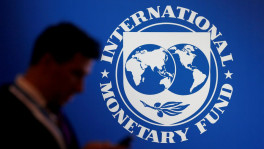Japan considering to release contaminated water of Fukushima nuclear blast into sea
An official decision could emerge by the end of this month

Japan is to release treated radioactive water from the destroyed Fukushima nuclear plant into the sea, media reports say.
It follows years of debate over how to dispose of the liquid, which includes water used to cool the power station hit by a massive tsunami in 2011, reports BBC.
Environmental and fishing groups oppose the idea but many scientists say the risk it would pose is low.
The government says no final decision has been made.
The release of more than a million tonnes of water, which has been filtered to reduce radioactivity, would start in 2022 at the earliest, according to Japanese media outlets including national dailies the Nikkei and the Yomiuri Shimbun.
The water would be diluted inside the plant before release so it is 40 times less concentrated, the Yomiuri Shimbun said, with the whole process taking 30 years.
An official decision could emerge by the end of this month, said Kyodo news agency.
There has been growing urgency over what to do with the water as space to store the liquid - which includes groundwater and rain that seeps daily into the plant - is running out.
Most of the radioactive isotopes have been removed using a complex filtration process. But one isotope, tritium, cannot be removed so the water has been stored in huge tanks which will fill up by 2022.
On Friday Japan's industry minister Hiroshi Kajiyama said no decision had yet been made on the disposal of the water but the government planned to make one soon.
"To prevent any delays in the decommissioning process, we need to make a decision quickly," he told a news conference.
Environmental groups have long expressed their opposition to releasing the water into the ocean. And fishing groups have argued against it, saying consumers will refuse to buy produce from the region.
However some scientists say the water would quickly be diluted in the vastness of the Pacific Ocean, and that tritium poses a low risk to human and animal health.
On 11 March 2011, a 15-metre tsunami was triggered by a 9.0 magnitude earthquake struck off the north-eastern coast of Japan, where the Fukushima nuclear power plant was situated. Although the back up systems of the plant has prevented it from melting down initially, the tsunami put the nail for the disaster.
As the facility's cooling systems failed in the days that followed, tonnes of radioactive material were released. The meltdown was the worst nuclear accident since Chernobyl in 1986.
Around 18,500 people died or disappeared in the quake and tsunami, and more than 160,000 were forced from their homes.


 Keep updated, follow The Business Standard's Google news channel
Keep updated, follow The Business Standard's Google news channel
















